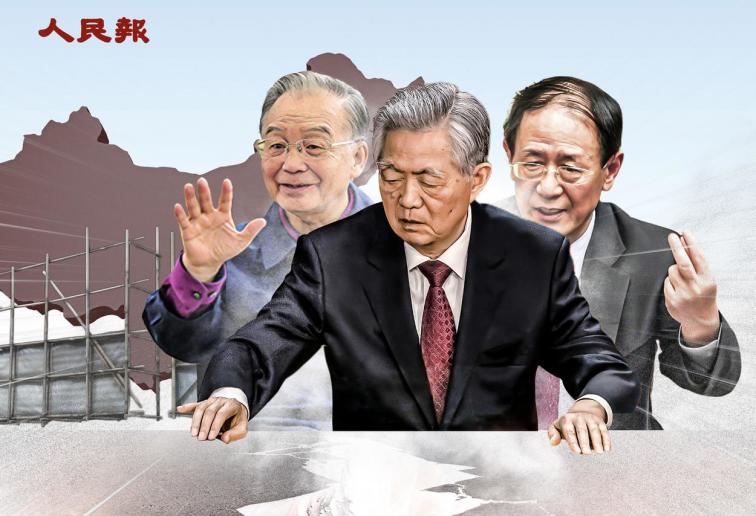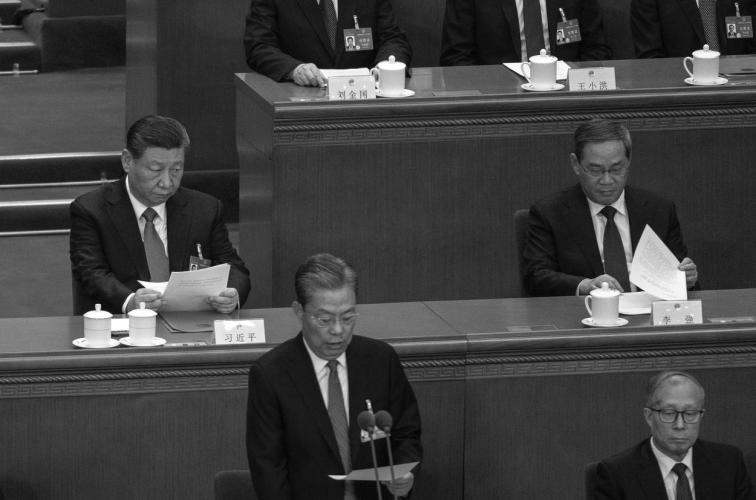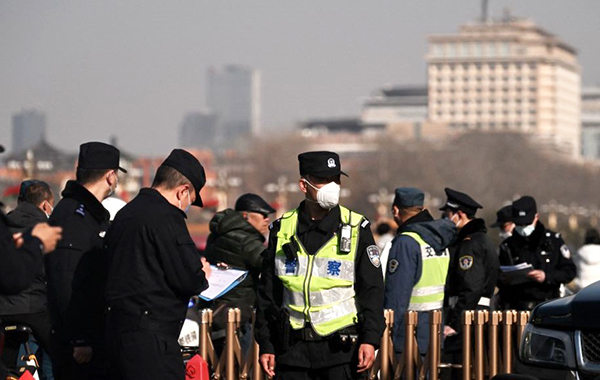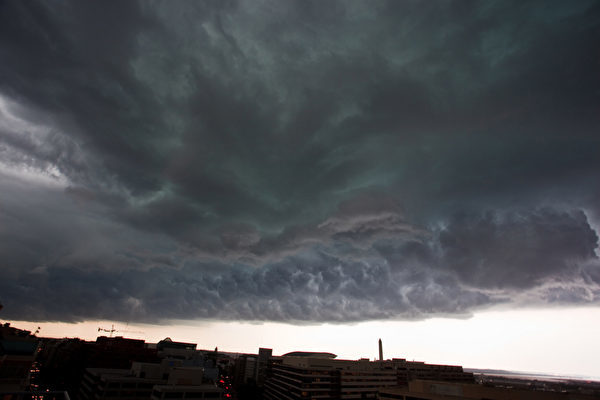Taiwan/Flag of the Republic of China. On January 11, 2023, at a military base in Kaohsiung, Taiwan's armed forces conducted a two-day routine exercise. (Annabelle Chih/Getty Images)
[People News] The BGU-57 bunker buster bomb carried by the U.S. 'Midnight Hammer' not only targeted Iran but also sent shockwaves through Zhongnanhai. While the Communist Party frequently boasts about the possibility of using force to unify Taiwan, the question remains: does Xi Jinping truly view Taiwan as a mere bargaining chip for domestic and foreign policy, or does he genuinely intend to launch an attack? Recently, retired U.S. Navy Admiral and former NATO Supreme Allied Commander James Stavridis highlighted three key reasons that deter Xi Jinping from taking impulsive military action against Taiwan.
According to a report by the Economic Observer on July 4, Stavridis mentioned in an interview with Bloomberg that three significant geopolitical issues are currently at stake between the U.S. and China: the status of Taiwan, ongoing cyberattacks between the two nations, and China's territorial claims in the South China Sea.
On the Taiwan Strait issue, Stavridis noted that this is the question he has been asked most frequently in his recent speeches and commentary programs.
Stavridis emphasized that 'Taiwan declaring independence' is a non-negotiable bottom line for the Beijing authorities. In other words, if Taiwan does not declare independence, Xi Jinping is unlikely to initiate an attack in the coming years. He analyzed that there are three major reasons that lead Xi Jinping to avoid rash military actions in the near future.
The first reason is that Xi Jinping lacks confidence in his military. Since the Korean War, this military has not engaged in a full-scale war, and Xi Jinping is uncertain about his ability to swiftly conquer Taiwan.
The U.S. Air Force think tank, the China Aerospace Studies Institute (CASI), released a report in early June indicating that the Chinese Communist Party's military is unable to implement the crucial military reforms needed to seize Taiwan by 2027. The report referenced an article from last year by Zhang Youxia, Vice Chairman of the Central Military Commission, which stated that the military will not be ready to attack Taiwan by 2027 as required by Xi Jinping.
According to the report, Zhang Youxia published an article in 2024 in the People's Daily, highlighting numerous deficiencies within the Chinese military, including weaknesses in military leadership, challenges in wartime military-civilian coordination, and the inability to conduct large-scale joint operations. Zhang assessed that, given the current development trends, the Chinese military is unlikely to have the necessary capabilities to launch a military attack on Taiwan before 2027.
The Taiwan China Times has quoted military analysts who noted that the National Army issues an annual 'Chinese Communist Military Power Report.' While acknowledging that the People's Liberation Army has capabilities for joint blockades and fire strikes against Taiwan, the report emphasizes that joint landing operations are constrained by Taiwan's natural geography. The PLA's landing craft and logistical capabilities are inadequate, meaning they 'do not possess the conventional combat capability for a full-scale invasion of Taiwan.'
Another reason is that Xi Jinping cannot determine the level of resistance Taiwan would put up.
Stavridis mentioned that he has visited Taiwan and met with high-ranking officials and military leaders. He believes that if Taiwan is invaded, it will not surrender easily and will mount a fierce resistance. The ongoing war in Ukraine has already provided a compelling example.
Since 2022, it has been three years since Russia invaded Ukraine, and the conflict remains unresolved. Initially, many believed that Ukraine would quickly succumb, but the fierce resistance displayed by Ukraine has surpassed expectations. Both sides have suffered heavy losses, and there are no victors.
The third reason is that if an attack on Taiwan were to occur, Xi Jinping would be unable to gauge the severity of the global sanctions that would follow.
Since Russia's invasion of Ukraine in February 2022, the United States, the United Kingdom, the European Union, along countries such as Australia, Canada, and Japan, have imposed over 16,500 sanctions on Russia.
Recently, the overwhelming military actions taken by the United States against Iran's nuclear facilities may have left Xi Jinping feeling anxious, prompting him to be more cautious in his decision-making.
In May of last year, the Washington Post reported that Trump mentioned at a fundraising event that if the Chinese Communist Party invaded Taiwan during his presidency, he would respond by bombing Beijing. Given Trump's assertive approach, if the Chinese Communist Party continues its persistent military provocations, would the B-2 bombers only target Iran and not strike the nuclear bunkers in Zhongnanhai?
(Originally published by People News)











News magazine bootstrap themes!
I like this themes, fast loading and look profesional
Thank you Carlos!
You're welcome!
Please support me with give positive rating!
Yes Sure!